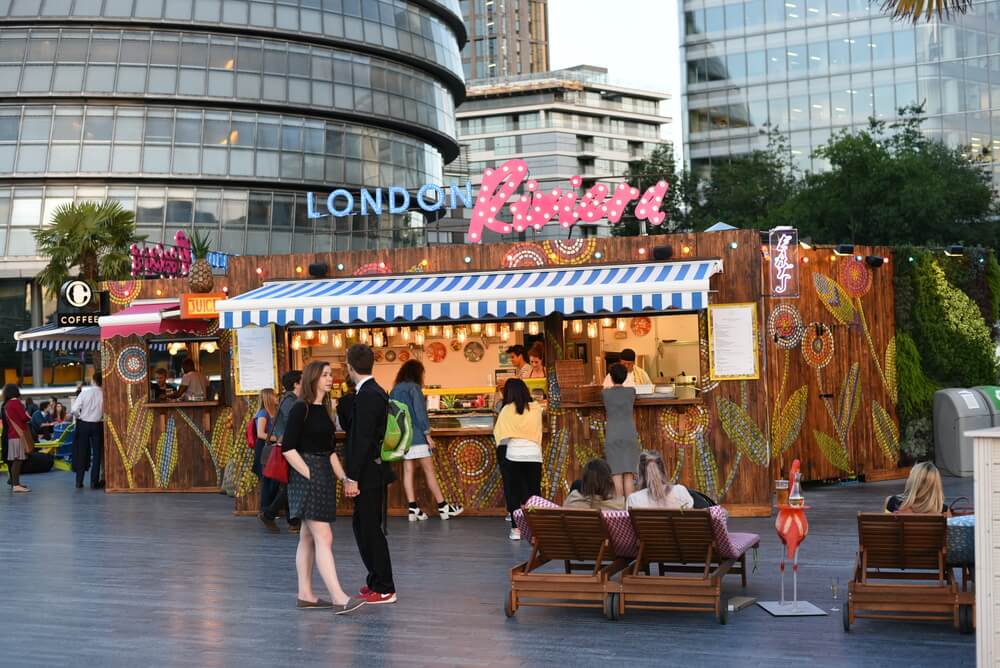The Halloween market ushered in the era of pop-up stores, which were short-term rentals of vacant retail properties. Now, the pop-up concept has spread from costume sales to Christmas ornaments to every sort of commercial establishment imaginable.
What makes a store a Pop-Up?
There was a time when a landlord would not consider offering a short-term lease for an empty property and would even leave a storefront vacant for years, losing rental income. The Halloween costume shops, which opened as pop-ups in many parts of the country, were among the first businesses to disrupt that traditional practice. Now, pop-up stores of all types are opening everywhere. A pop-up store is a temporary retail space that sells merchandise in a transient location anywhere for a short period. For landlords, it provides rental income on otherwise vacant property, often at a higher rate than it would if it were rented on a longer lease. Pop-ups also help dispel the gloom of lines of vacant storefronts by adding pizzazz and activity to an area that might otherwise look neglected. For businesses, pop-ups offer a number of benefits — and moving seasonal goods is just one of them.
Multiple benefits
Pop-up stores are a way to launch a new product or to test out a brand without making an expensive, long-term lease commitment. They also can be used to figure out the best location for a new business by testing the waters in various locations before making a commitment. A pop-up can be used by an online brand to generate interest by getting brick-and-mortar engagement with its customer base. Even big brands have used this vehicle to generate excitement, such as when FILA used a pop-up to introduce its Mindblower Sneaker or Yoplait and Chobani each opened yogurt pop-ups in New York’s Soho. On the other hand, seasonal or other types of small businesses can use pop-ups to move merchandise that would otherwise remain unsold.
The allure of the limited run
The limited run of a pop-up store is similar to the attraction of the limited edition of any product or the limited-time offer. It lends a sense of urgency and exclusivity. Pop-up stores only exist for a fleeting moment in retail time, and so only a limited amount of people will have access to them. Making them even more exclusive, pop-ups can open with very short notice, no construction signs or other evidence of what is coming to that location. Celebrities have used pop-ups to create excitement about upcoming events and releases such as Drake and Kanye West who both used pop-ups with short notice to trumpet the release of new albums or merchandise.
Takeaway
Pop-up stores, once an unusual and niche use of vacant real estate, have become important marketing tools for creative, enterprising businesses. They are no longer a fad but provide flexibility and profitability for both the landlord and the renter. In 1991, the average retail lease was 20 years. Pop-ups now rent for as little as three days, but they have become an important part of a sagging real estate market, valued at $50 billion for 2016 and growing each year.
Have something to add to this story? Comment below or join the discussion on Facebook.
Header image: ShutterStock









































